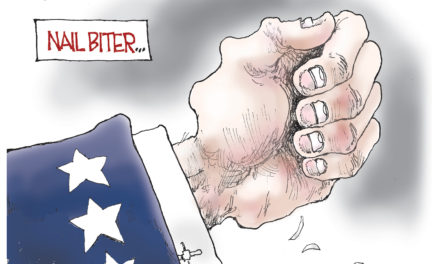
Sometimes, listening to the defenders of our Confederate-named parks, you get the feeling that the future of Western civilization itself is at stake. It’s as if Memphis was a bastion of Southern gentility like Richmond or Atlanta. It’s all revisionist history of the crassest kind. It’s time to get real.
Memphis’ main historical claim to Civil War fame was that its citizens seemed to go in whatever direction the wind was blowing at the time, especially when it was blowing off a Union ironclad in the Mississippi River. After all, the honor of fighting for the Old South only ran deep enough for the Battle of Memphis to last a couple of hours. The city promptly surrendered and Union commanders hoisted their flag over the Courthouse. There is the story that speaks to the attitude of the people toward the battle; it is said that they took their breakfasts, sat on the riverbluffs and enjoyed the action.
All of this makes the impassioned advocates for Southern pride almost laughable in their rhetorical excess. In his letter to the editor of The Commercial Appeal, Lee Millar writes that “we need to preserve and protect our history – everybody’s history – and not try to cover it up.”
Can he really mean it? “Our” history is one of enslaved black families sold in Memphis as blithely as the cotton that they picked in sales that gave Auction Street its name, the carnal rights that many landowners had to the bodies of women they owned, and families torn apart and given names as foreign to them as the world they had been brought to.
Somehow, to the defenders of the Old South, all of these realities are of less importance than the notion of Southern nobility on the battlefield. They act like the names of public property – streets and parks – are sacrosanct and that renaming these parks is somehow about changing history. Of course, it begs the question of what these parks were called before they were renamed to honor Jefferson Davis, Nathan Bedford Forrest and the Confederacy.
This isn’t about destroying history. No history took place in these parks. They weren’t battlefields. They weren’t scenes of great historical events. They were simply given these names as a show of defiance in the wake of a lost war to defend an economy built on the backs of slave labor. If we are serious about defending our history, let’s just go back to whatever the founders of Memphis called these areas when they laid out the city in the early 1800’s.
Mr. Millar contends that these Civil War parks “should be enhanced and promoted, not destroyed” and suggests that we should promote them as part of our tourism marketing. Why not? Let’s see if we can dress up some black folks in period costumes and parade them up and down the parks. Maybe we can even order them around and slap them on occasion for failing to get off the sidewalks fast enough. Maybe we can even recreate General Forrest’s Ku Klux Klan raids that exacted a price from blacks and sympathetic whites for failing to tow the line as he saw it.
If Mr. Millar’s comments aren’t enough, then there is Tom Williams, whose noblesse oblige causes him to drive in from Germantown to tell Memphians what to do about their parks. “I tell you this is going to divide the races more than anything that ever happened here in the last 30 years,” he tells the media in a tone that would seem to indicate that he would have thought the same thing when Mayor Herenton was elected as Memphis’ first black mayor. Perhaps if Mr. Williams feels so strongly about honoring the Confederacy, he should go back to Germantown and urge his own elected officials to change the names of the parks there.
On one thing, Mr. Williams is right. Walter Bailey is skewing history. He has to skew it to get it back to the middle after 140 years of honoring Jefferson Davis, Nathan Bedford Forrest and the Confederacy in the names of these parks.
At the end of the day, the major, sad lesson of this emotional debate is how close to the surface are the simmering resentment and racial hostility still held by some citizens of our community. Code words triumph and reason is fleeting. Somehow, the proud sons of the Confederacy can only identify with their own feelings. Only their opinions matter. The rest of us – more than 75 percent of Memphians who care about uniting the city and about eliminating the needless offensive imagery of these parks – should simply be ignored.
It’s amazing that some of these people will even drive on Union Avenue to get downtown…or on Washington, Adams, Monroe and Madison Avenues, named for the founders of the country the Confederacy wanted to repudiate and destroy.
They say history is written by the victors. It’s time for these people to realize it.





